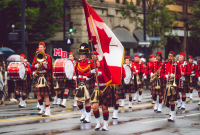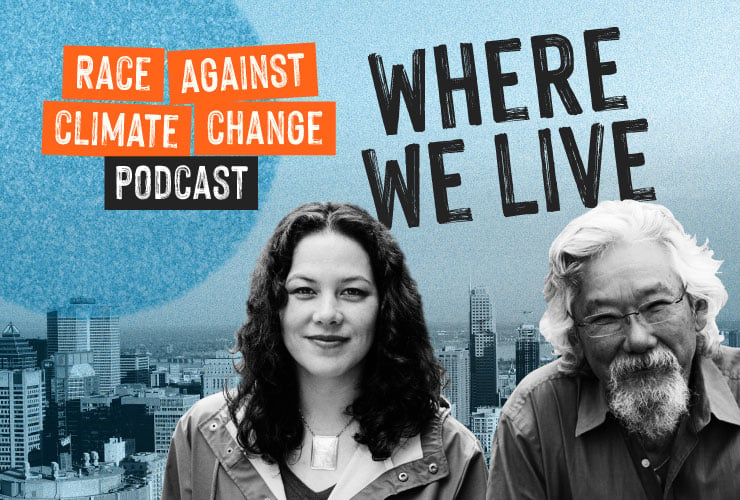Support strong Canadian climate journalism for 2025
The Toronto school board says unvaccinated staff will soon be put on unpaid leave, as it maintains a more stringent line on vaccinations than the Ontario government.
The deadlines the Toronto District School Board (TDSB) announced in an email Wednesday were a delay on its original plan, while Premier Doug Ford remains committed to making such inoculations voluntary — for education staff and students.
“We understand vaccination is a deeply personal decision, however, due to the serious health threat COVID-19 presents to the public, this must be balanced against the board’s obligations to protect the health and safety of its employees and students,” TDSB director of education Colleen Russell-Rawlins said in the email.
The country’s biggest school board was one of two big players in Ontario’s education system this week responding more stridently than the Ford government to the COVID-19 pandemic, with the province’s science advisory table saying a school-based vaccination program would be one of the best ways to increase uptake of Ontario’s COVID-19 jabs for children and youth.
Health Minister Christine Elliott answered that call by saying schools would be a likely setting for vaccinating five- to 11-year-olds once a pediatric vaccine is approved for use, but perhaps not during school hours.
“Some of them may be on weekends or in the evenings because I think a lot of parents, if you’re speaking about vaccinating a five-year-old, most parents would want to be with their child,” she said, according to The Canadian Press.
Schools in Ontario already require, and in some cases administer, vaccinations for a string of childhood diseases as a condition of going to primary or secondary school in the province, but Ford has so far not indicated his government would look to add a COVID-19 jab to that list, which includes diphtheria, tetanus, polio, measles, meningitis, and whooping cough.
Previously, the TDSB said any of its staffers still unvaccinated as of Nov. 1 would be placed on a “non-disciplinary administrative leave of absence without pay” effective Nov. 2.
Now, staff members have until Nov. 21 to get vaccinated and must pass two rapid antigen tests a week until then. If it's the first dose of a COVID vaccine, they have a month to get their second, and after that, any unvaccinated staff will be placed on unpaid leave.
So far, more than 88.5 per cent of the TDSB’s 40,000 staff members are compliant with the procedure, the board said.
Just over half of Canadian parents plan to immediately vaccinate their kids when a pediatric dose becomes available, according to a recent Angus Reid poll, while 23 per cent said they would never give their kids a COVID-19 vaccine, and 18 per cent said they would wait.
The national rate of vaccine hesitancy was pulled higher due to 30 per cent of parents in Alberta, Saskatchewan, and Quebec saying they're not planning to vaccinate their children. Around 15 per cent of parents would decline it in Ontario, British Columbia, and Atlantic Canada.
The Science Table, which delivers a consensus opinion from a collection of medical and scientific experts to cabinet, says other strategies to ensure the highest possible youth uptake include the recommendations of health-care providers, reminder and recall systems, and public health communications campaigns, the group said in a brief published late Tuesday.
“School-based vaccination programs are a high-impact and effective approach for increasing uptake that addresses many practical issues,” the group said, including reach, convenience, accessibility, and equity.
“Canadian schools are familiar locations for rolling out a number of youth vaccines (e.g., hepatitis B, human papillomavirus (HPV), and meningococcal vaccines),” it added, noting in-school vaccination programs had not historically been used for younger age groups but could be possible with the help of local public health units.
It said any efforts to encourage vaccination among younger people need to follow these key principles: build and leverage trust, avoid one-size-fits-all approaches, and ensure special considerations for reaching at-risk populations such as the precariously housed, as well as for Black, Indigenous, and other racialized communities.
Morgan Sharp / Local Journalism Initiative / Canada’s National Observer






Comments
It's not true that Ontario doesn't require vaccines in schools. There is a long list of scheduled vaccines, which are in fact *delivered* in schools, by Public Health. Covid vaccines haven't been added to the schedule, probably for purely political reasons: FordNation includes a lot of people whose only information is misinformation and disinformation, and whose idea of "research" is FaceBook and links there to YouTube.
Where exemptions are obtained, the exempted child(ren) can go to school: but not when the illness is circulating in the population. FI, if a child hasn't been vaccinated for measles, and there's an outbreak of measles, the child is not allowed on school premises until the measles outbreak is over. If they've not been vaccinated for polio, that's irrelevant during a measles outbreak: that would be germane only in the instance of polio in the community.
Given the uptake we've seen when activities are restricted to the Covid-vaccinated, is that where activities they like are subject to a vaccine requirement, they've vaccinated rather than forego. It wasn't a matter of actual vaccine risk, or principle. My guess is people would vaccinate their children rather than keep their kids home from schools and daycares, for the duration, given that some of them already have done so their children can play indoor sports. Most parents have had way too much kids-at-home-24/7 than they would ever have been prepared to do voluntarily.
Vaccines aren't risk-free, none of them. For some people, including children, the risks are greater than for others. Public Health calculates population risks, not individual risks. Individuals vulnerable to particular vaccines because of individual risk factors are, as it is, exempt. But those exemptions come with the prospect of exclusions. I don't see Covid as being any different.
In my household, there have been numerous allergies and chemical sensitivities, including to many drugs, OTC preparations included, as well as to particular vaccine ingredients.
There's nothing more terrifying than watching a child who's a few months old having a bad reaction to a vaccine that was supposed to protect them, and then seeing a reaction to, say, the fever reducer advised by the doctor. Nothing about the reaction but the fever can be stopped: it's a matter of waiting it out and then dealing with the damage left behind. The guilt one feels when a small baby child reacts to Mom's meds delivered to the child in breast milk, is indescribable, but that's another matter.
However, general anxiety shouldn't be a reason for refusal, and others shouldn't be made vulnerable either because of an individual's choice. We've had outbreaks in daycares, non-stop since early in the pandemic. Ditto in schools. the information isn't all in one place, so one has to go looking for it. I did.
To this date, our Public Health (at all levels of government) hasn't acknowledged some of the side-effects and sequelae of vaccines. They won't even tell us what the differences are between the kinds of vaccines they approved and delivered.
With the mRNA vaccines, there isn't any risk of shedding, passing on a vaccine pathogen strain of the illness it's meant to suppress. I've seen a child get chickenpox from children recently vaccinated.
It's not clear that an infant enjoys some level of immunity compliments of a pregnant or nursing mom's vaccination, though it is in the case of actual illness. I've seen nothing at all on how long that might last, or at what age there might be no or inadequate residual immunity.
I'm glad I don't have little children today; I don't have to make the decision. But if I did, and could, based on my personal experience with side-effects/reactions and sequelae, I'd probably keep youngsters home, and avoid any contact with exposed individuals, till the risks of serious side effects and sequelae were calibrated in real life and associated with individuals' individual makeup. Pre-approval studies don't do that.
I would do that because while Public Health, and all our various systems, are responsible for what happens on a population-wide level, individual parents' responsibilities must be primarily to their own children. Maybe we lose sight of that distinction too often. If an individual child is harmed, it's the parents on the hook, not anyone in government or its institutions, at any level. It's quite the opposite if children are harmed by parents' poor lifestyle choices, even when based on ignorance or individual vulnerabilities.
And I repeat what I've said here before: we take vaccines to protect ourselves. We mask, distance and wash hands to protect others as well. One isn't a substitute for the other, even moreso with a vaccine whose efficacy was never calculated on the basis of prevention of infection ... only symptomatic infection -- and at that, what turned out to be a very truncated list of symptoms.
I took the vaccine because I'm old, despite that it's less effective for me than for younger people, because of the numbers around preventing severe illness and death. But I researched each and every ingredient, to determine if it was metabolized by the same enzymes as other substances I've had very bad reactions to. I didn't start out with hesitancy, but with questions. Once those questions were answered, there was still a small risk, and there were still sequelae. Fortunately, they resolved within weeks, and I'm glad I did it.
If I lived with family more vulnerable than me, I'd have done it anyway, because households aren't the general population.
Choice, yes. But endangering others, for choices made on the basis of misinformation or spurious reasons, is a no go.
It's very hard on adult children, when their parents refuse vaccines, and to keep vulnerable people in their own households safe they have to restrict contact with those parents. And equally hard on grandparents who aren't on board with the misinformation subscribed to by their children, whether it's the adult children or their offspring who've become the oldsters primary risk factors.